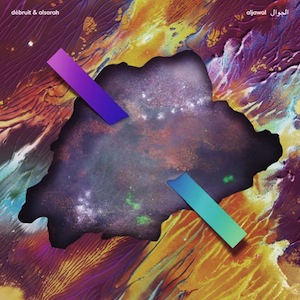Following the banks of the Nile southward, the social, historical, and cultural landscape is one filled with fertile cross pollination, and has been that way for millennia. Some thousand miles from Alexandria where the Nile meets the Mediterranean, the river’s banks are home to the Sudanese capital of Khartoum. As a cultural crossroads, it’s one of Africa’s busiest, and the nation’s rich and diverse musical traditions are testament to this, blending the Arabic instrumentation, Islamic vocal traditions, and Sufist Dervish spirituality with Sub-Saharan rhythmic tropes.
However, since Omar al-Bashir’s coup in 1989, strict Sharia law and the everyday implications of the nation’s political turmoil (the continuing extent of which is still somewhat ambiguous since the separation of South Sudan in 2011) have driven many poets and musicians from the country, including the family of Khartoum-born singer, Alsarah. Living in America since 1994, Alsarah has been making a name for herself in Brooklyn where the likes of DJ/Rupture have been consistently flying the flag for popular music from under sung diasporic communities, in particular those of Arabic and African origin.
Aljawal (‘The Traveller’) sees Alsarah in collaboration with French artist Débruit, who’s been bridging the gap between instrumental hip-hop, Herbie Hancock’s populist synth-heavy 80s output, and Africa’s many nomadic forms of music over a handful of brilliant and colourful syncopated electronica releases. Aljawal brings together kindred spirits in Débruit & Alsarah, creating a futurist vision of heterogeneous pop, which feels as boldly fresh as it does steeped in ancient tradition. Alsarah’s smokey voice drifts across opening ‘Alrahal’ (‘Explorer’) with all the showmanship of a ghost, whisper-singing into a soft echo-chamber while Débruit’s gentle syncopated crunkster beat meshes with a series of Saharan samples and siren-esque synth lines. The music is psychedelic inasmuch as it’s multicoloured, and it’s also dance music inasmuch as there’s a beat – but the introduction of song structures and Alsarah’s voice to the proceedings has tamed the often restless style of Débruit.
Last year’s From The Horizon by the Frenchman occasionally implied an overflowing pot of sounds and musical ideas almost reminiscent of J Dilla’s Donuts (although never quite as breakneck in its pace), but the eleven tracks on Aljawal show off a maturation, and increasing adaptability. ‘Jamilla’ is nearly an out-and-out folk song, perfectly delivered by Alsarah, and given relatively hands-off dub treatment by Débruit, who leaves the singer almost unaccompanied, save for sub-bass, smatterings of spring reverb and a small handful of Jamaican sound effects.
Conversely, ‘Khartoum’ sees Alsarah step aside while Débruit overlays sampled hand drums with a menagerie of stuttering synths, further syncopation and snatches of sampled voices and musicians from the Sudanese metropolis. Eagle-eared listeners will recognise the melody of ‘Jibal alnuba’ – it’s a common folk song from Sudan, and one that’s been notably sampled by the aforementioned DJ/Rupture on his seminal turntablist masterpiece, Minesweeper Suite back in 2002. Here, the tune is shapeshifted from hand-clapping Sudanese folk into meditative space-age pop music, part-hymnal, part-rave.
The styles touched upon over the record’s paltry thirty-six minutes are too numerous to name in full. Nubian folk, dub, hip-hop, techno, dervish music and synth pop are all present, and their synthesis by Débruit & Alsarah comes naturally. As a voice, Alsarah is pretty awe-inspiring to hear. ‘Loulia’ is another near-a cappella folk tune, performed with breathtakingly intense intimacy by the singer, and in stark contrast to the album’s production-heavy tracks, brings out the the very human soul at the centre of ancient Sudanese song forms. Débruit proves to be the perfect catalyst, and his ability to seemingly adopt any timbral palette into his beat- and synth-heavy, disjointed song structures is as awesome as ever (even if he’s somewhat toned down the increasingly restless schizophrenia of his solo tracks). On Aljawal, ancient clashes with modern, organic with synthetic, and African with European. Like DJ/Rupture, or indeed the Soundway label that released this record, Aljawal is a multifaceted listening experience that further reveals with repeated listens, and achieves that rarest of things in pop music – capturing and acknowledging the past, while reinventing and proposing for the future.


